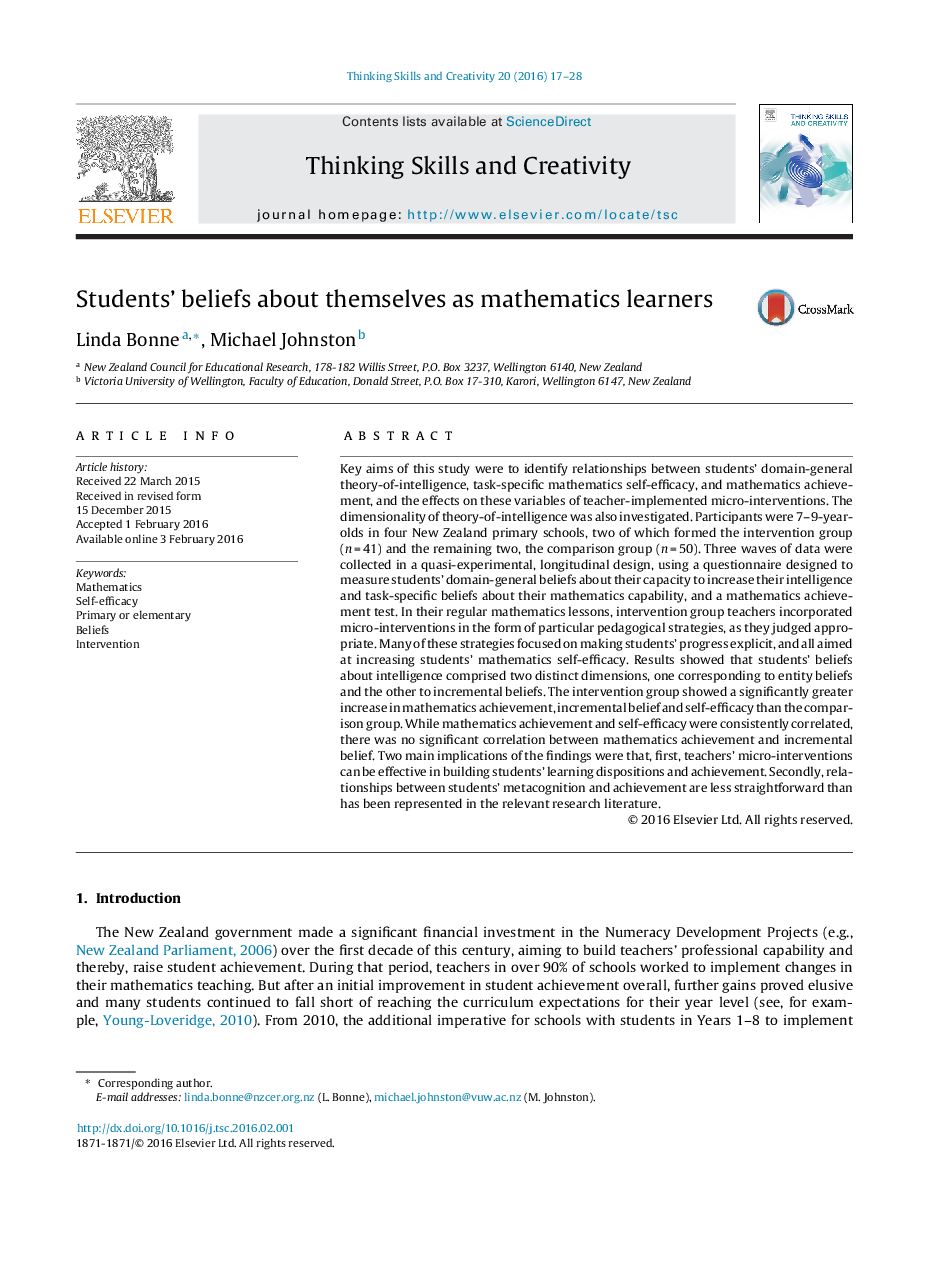| کد مقاله | کد نشریه | سال انتشار | مقاله انگلیسی | نسخه تمام متن |
|---|---|---|---|---|
| 375523 | 622801 | 2016 | 12 صفحه PDF | دانلود رایگان |
• Students beliefs about intelligence comprised two dimensions: entity & incremental.
• Increased math achievement, self-efficacy, incremental belief in intervention group.
• Math self-efficacy and achievement were consistently correlated.
• No significant correlation found between math achievement and incremental belief.
• Teachers micro-interventions can strengthen students beliefs about learning
Key aims of this study were to identify relationships between students’ domain-general theory-of-intelligence, task-specific mathematics self-efficacy, and mathematics achievement, and the effects on these variables of teacher-implemented micro-interventions. The dimensionality of theory-of-intelligence was also investigated. Participants were 7–9-year-olds in four New Zealand primary schools, two of which formed the intervention group (n = 41) and the remaining two, the comparison group (n = 50). Three waves of data were collected in a quasi-experimental, longitudinal design, using a questionnaire designed to measure students’ domain-general beliefs about their capacity to increase their intelligence and task-specific beliefs about their mathematics capability, and a mathematics achievement test. In their regular mathematics lessons, intervention group teachers incorporated micro-interventions in the form of particular pedagogical strategies, as they judged appropriate. Many of these strategies focused on making students’ progress explicit, and all aimed at increasing students’ mathematics self-efficacy. Results showed that students’ beliefs about intelligence comprised two distinct dimensions, one corresponding to entity beliefs and the other to incremental beliefs. The intervention group showed a significantly greater increase in mathematics achievement, incremental belief and self-efficacy than the comparison group. While mathematics achievement and self-efficacy were consistently correlated, there was no significant correlation between mathematics achievement and incremental belief. Two main implications of the findings were that, first, teachers’ micro-interventions can be effective in building students’ learning dispositions and achievement. Secondly, relationships between students’ metacognition and achievement are less straightforward than has been represented in the relevant research literature.
Journal: Thinking Skills and Creativity - Volume 20, June 2016, Pages 17–28
